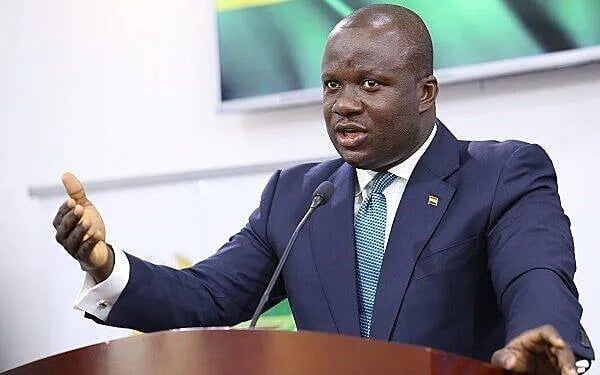The government of Ghana, through the Minister of Lands and Natural Resources, Samuel Abu Jinapor, has launched a new initiative aimed at combating illegal mining activities, commonly known as galamsey. This initiative introduces the concept of “River Guards,” a specialized team that will be responsible for safeguarding the country’s rivers against the adverse effects of such illegal operations. Jinapor made this announcement during the Asaase Radio Breakfast Show on October 8, highlighting the severe pollution and ecological damage caused by galamsey activities across Ghana. The rise of illegal mining has raised critical environmental concerns, prompting the government to take further action to protect vital water resources and ensure a sustainable ecological balance.
The River Guards initiative is designed to actively patrol and monitor the nation’s rivers, which have been significantly affected by illegal mining practices. The team will be responsible for enforcing various environmental laws and protecting water bodies from continual exploitation. This move underscores the government’s commitment to not only addressing the immediate dangers posed by illegal mining but also restoring affected ecosystems and maintaining water quality for the benefit of the population and diverse wildlife. The initiative reflects an understanding of the broader implications of illegal mining, which goes beyond mere economic activity to include critical environmental and public health considerations.
The supervision of the River Guards will fall under the jurisdiction of the Ghana Navy, reinforcing the government’s emphasis on accountability and effective enforcement. This partnership with the Navy is designed to bolster the initiative’s capacity to act decisively against illegal miners and to conduct regular surveillance of the rivers. By integrating military resources into this environmental protection effort, the government aims to ensure that river ecosystems are preserved, and appropriate action can be taken in a timely manner when illegal activities are detected. This strategic approach illustrates the government’s resolve to take a comprehensive stand against the challenges posed by galamsey.
Jinapor described the deployment of River Guards as a “decisive measure” in the ongoing battle against illegal mining, emphasizing the government’s unwavering commitment to keep rivers free from such activities. The initiative is framed as an essential step in a broader effort to safeguard the nation’s natural resources, signaling a shift toward more proactive environmental stewardship in Ghana. The significant emphasis placed on the protection of rivers reflects the deep awareness of the interconnectedness of environmental health, economic stability, and social well-being, as many communities depend directly on these water bodies for their livelihood.
The effects of galamsey on Ghana’s rivers extend beyond environmental degradation; they can lead to dire public health implications as the pollution from mining activities can contaminate water sources. By deploying River Guards, the government hopes to mitigate these risks, thereby improving the quality of life for citizens and restoring the health of ecosystems. This initiative forms part of a larger governmental strategy that seeks to eliminate illegal mining and promote sustainable mining practices that align with environmental conservation efforts. Education on responsible mining practices and the enforcement of laws against illegal operations will also be critical components of the strategy.
In conclusion, the introduction of the River Guards initiative represents a significant advancement in Ghana’s efforts to address illegal mining and its detrimental effects on the environment. This multifaceted approach, involving continuous monitoring, enforcement, and military collaboration, is positioned as a proactive response to one of the nation’s pressing environmental crises. By prioritizing the protection of rivers and fostering healthier ecosystems, the government demonstrates a commitment not only to current citizens but also to future generations in Ghana, aiming to balance economic development with environmental sustainability.














